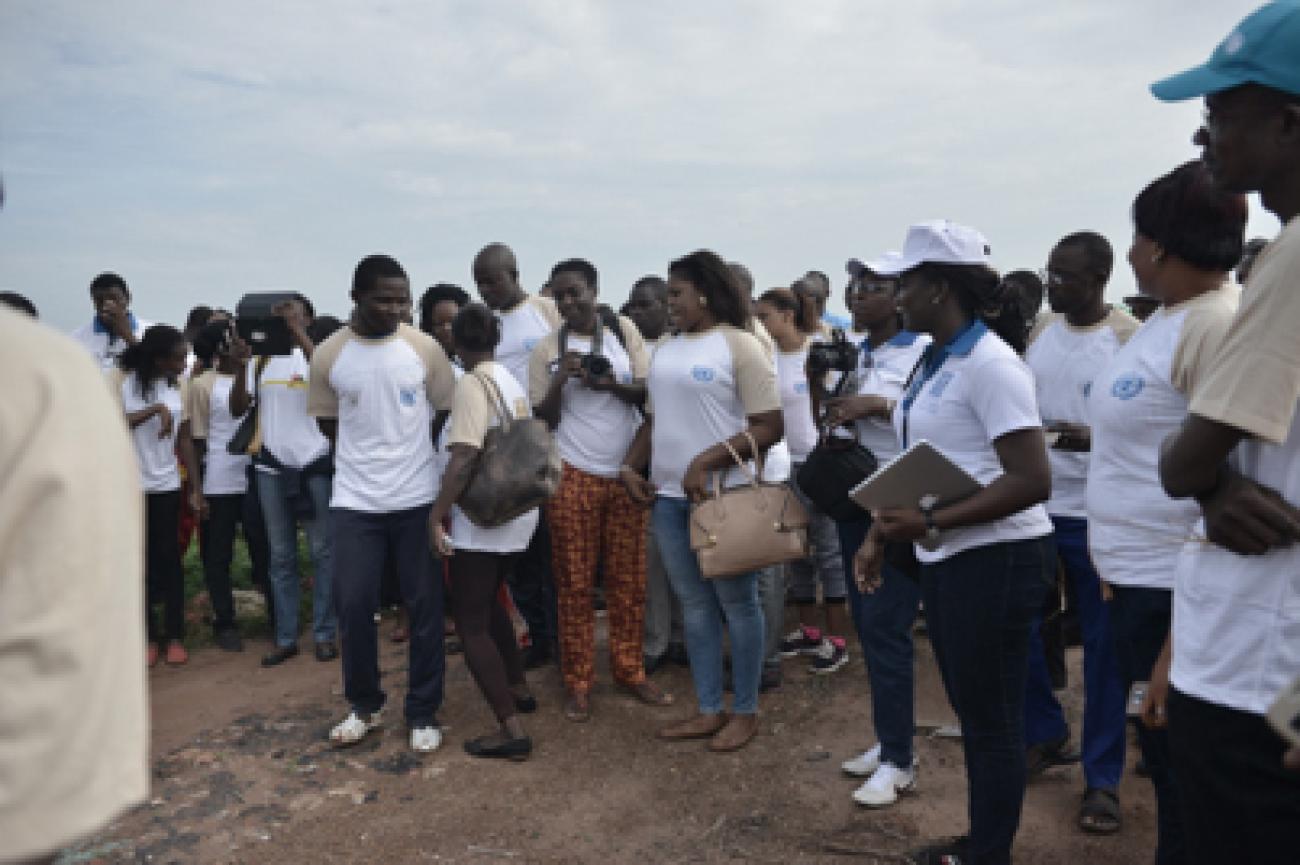Why the UN in Burkina Faso is listening to what young people are saying

There are 4.5 million people between 15-35 years old in Burkina Faso, according to the last general population and housing census of 2006. By 2025, this number will almost double to 8.6 million people, which means that roughly half of the population in Burkina Faso will be young.
Some young people in Burkina Faso feel that the government does not take their aspirations seriously. To voice their disapproval, millions rose up against the system on 30-31 October 2014, and they caught the government’s attention.
On 18-19 June 2015, young Burkinabés met with decision-makers at the National Youth Conference to talk about the importance of their participation in development programs and projects to promote peace. Mr. Michael Kafando, the former Head of State and President of the Transition was so impressed that he said: “With young people, everything is possible. Without the youth, watch out!”
Sustainable development planning with young people
As the UN in Burkina Faso began to work on the new framework of cooperation and support to development for 2018-2020, we connected with young citizens to better understand their needs. Twenty-six young people (two per region) worked with us to collect data from all regions. They received support from the National Volunteer Program and the Centre for Democratic Governance and Africa Monitor trained them on data collection techniques.
The 26 youth researchers conducted two surveys to 1,532 individuals between 15-35 years old.
With a qualitative survey, they collected and registered young people’s perceptions on the implementation of UN programs in Burkina Faso. They carried out 65 focus groups. Six opinion leaders (religious, customary, associations, and politicians) also participated. In total, more than 598 people took part in the qualitative survey.
We learned that education, health, and decent work are the Sustainable Development Goals (SDGs) they care about the most. For example, youth want to receive technical training because they think that the educational system is outdated and the main pipeline to unemployment.
With the quantitative survey, they obtained data on the baseline of the indicators of the SDGs and the National Plan for Economic and Social Development.
While some of these findings might be expected, we found it important to undertake this listening exercise. While we at the UN are gearing up achievement of the Sustainable Development Goals by 2030, we found out that we need to start with a dialogue so that young people in Burkina Faso know what their government has promised to do. From the research, we learned that 72 percent of respondents had not even heard of the SDGs. Fifty percent had never heard of the National Plan for Economic and Social Development 2016-2020. This surprised us!
Measuring progress to ensure transparency and accountability
In the context of Burkina Faso, monitoring and reporting on socio-economic indicators is a major challenge. Approximately 25 percent of the United Nations Development Assistance Framework output indicators were not reported over the period of 2011-2015. Two problems were the infrequency and lack of accountability from the agencies in collecting the data.
To address this problem, we are implementing Open UN-Burkina, modeled after UNOCHA’s Online Reporting System (ORS). The platform will:
- Enhance the transparency of the activities of the UN in Burkina Faso;
- Strengthen the participation of state and non-state partners in the UNDAF indicators.
This platform will provide information which will be accessible to everyone. It will also have a tool that will allow young people to give their opinions and collect the data continuously.
With this platform, our aim is to ensure transparency, accountability, and improve our targeting efforts. We hope that this enables a continuous dialogue with the youth of Burkina Faso. To the young people out there: monitor our work and hold us to account!













